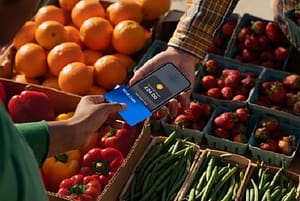Transparency is a word that’s thrown around a lot, these days, though it’s questionable if people truly have a grasp on what it means. The word “transparency” is used in everything from banking transactions to presidential elections, but did you know that there’s a call for transparency in the coffee industry, as well?
The coffee industry is seeing an influx of corporations, and actors, who tout the need for an ethical cup of coffee, especially amidst growing concerns of worker exploitation and other unfavorable conditions in developing countries where these beans are grown. But are these “woke” coffee companies really holding people accountable, or is it performative activism?
Transparency is difficult but necessary
When it comes to transparency in the coffee industry, the challenge is a necessary — albeit difficult — one to overcome. Over the past decade, there have been significant inroads made in regard to providing a more ethical cup of coffee to the consumer. This is impressive, especially in the wake of things like climate change, which is having a real impact on farms all over the world.
One of the biggest problems that ethical coffee makers have is the lack of transparency in the supply chain. How do you trace the coffee from farm to table, such as it were?
That’s a problem that many leaders in the industry recognized as a real one, which has led them to call for more transparency in recent years. Many of them started this by taking what was known, colloquially, as The Pledge. The Pledge, which began in 2018 at a trade show in Hamburg, Germany, merely states that these ethical coffee companies will adopt a uniform code of conduct of sorts. In doing so, they hope to create a “common transparency standard which applies throughout the coffee industry.” Obviously, the more information that’s reported, the more transparent the company is — but what’s not clear is whether there’s a standard for the amount of information that’s genuinely shared by all parties participating in The Pledge.
And, to be frank, are the consumers even aware of what The Pledge entails, and what it means to them as an educated consumer of ethical coffee?
How does iFinca help with transparency?
Due to a lack of uniform transparency, the coffee industry is long overdue for an overhaul. While iFinca doesn’t propose to have all the answers to transparency, it does its part to educate the consumer in the best way possible.
Using a blockchain-based app that’s available for both Android and iPhone users, educated consumers can scan the Meet the Farmer QR code, and track and verify all purchases made. In other words, the consumer will be able to see everything from when the farmer sells their coffee to when the consumer purchases it — and everywhere in between — to get as close to perfect transparency as possible.
While this doesn’t solve all the problems that the ethical coffee industry faces today, it’s certainly a step in the right direction.






Leave a Comment